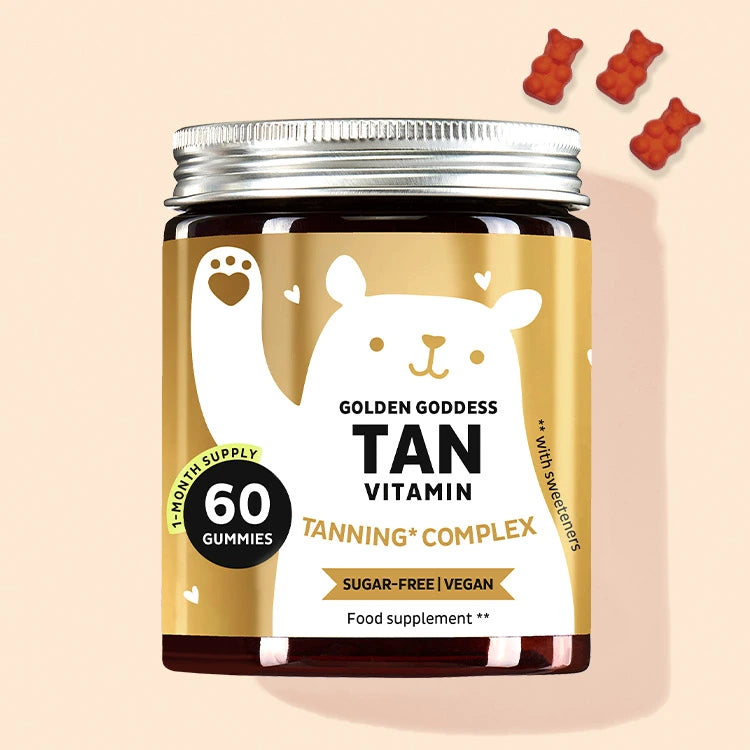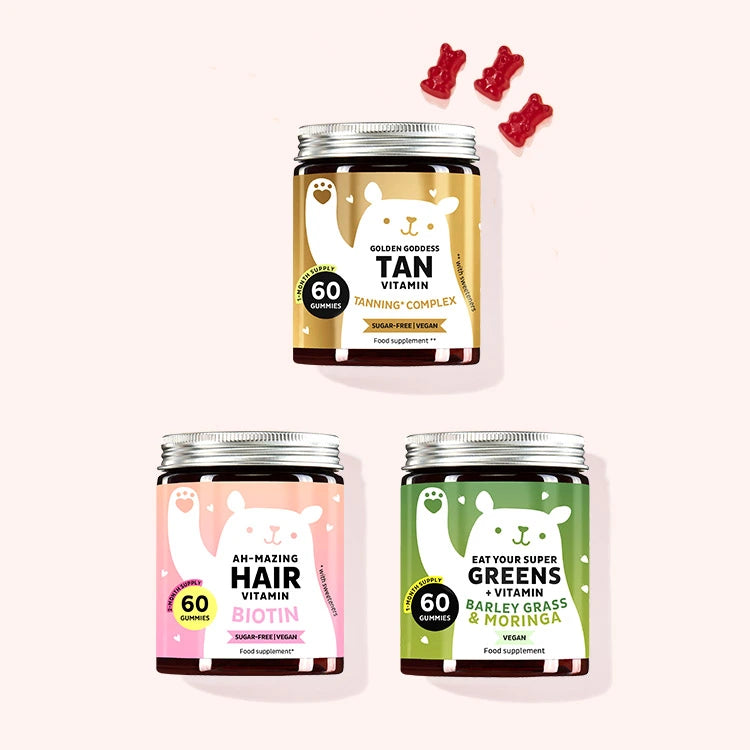Beta-carotene - What you need to know
What is beta-carotene?
Beta-carotene is a secondary plant substance and comes from the carotenoid family. It can be converted into vitamin A in the body and is also called provitamin A for this reason. In its natural form, it is found in a wide variety of vegetables and fruits. Beta-carotene is used as a colourant in numerous foods, beverages and medicines, giving these products their orange or red colour. It is also added to food supplements and other foods such as vitamin bears.

What foods contain beta-carotene?
In natural form, beta-carotene is found in vegetables and fruits, especially carrots, sweet potatoes, beets, tomatoes, peppers, apricots, melons and mangoes. In addition, spinach, kale, broccoli and other dark green vegetables are also rich in beta-carotene.
Effect of beta-carotene
Beta-carotene has a high antioxidant effect and can thus reduce the risk of cardiovascular diseases, stroke, heart attack and various types of cancer. It also reduces the oxidation of LDL cholesterol and, therefore, inhibits the development of atherosclerosis. Studies also show that carotenoids can significantly reduce the risk of heart disease and stroke.
Because beta-carotene can be converted into vitamin A, which is important for the stomach lining, stomach walls and gastric juices, the risk of stomach cancer can also be reduced.
In addition, beta-carotene also has a positive effect on brain function. Due to the antioxidant effect, the life span of brain cells can be increased. It also has an influence on the processing of beta-amyloid protein, which is particularly important in preventing Alzheimer's disease. Beta-carotene also has an anti-inflammatory effect. Vitamin A is very important for the sense of sight. Accordingly, a deficiency can lead to vision problems in the long term.

NASSIM JAMALZADEH:
"You should not underestimate the effect of beta-carotene in any case. Because it not only has an effect on the immune system, but has an important role for cell growth. But also some studies could show positive effects on cardiovascular diseases or even cancer. Therefore, a diet with beta-carotene should not be neglected."
FAQS ABOUT BETA-CAROTENE
FAQS ABOUT BETA-CAROTENE
In a natural way, no more than 15mg of beta-carotene should be taken in daily. People who take beta-carotene with the help of dietary supplements, the daily dose is 3.5mg.
For healthy non-smokers, no scientific results exist that high beta-carotene intake causes undesirable effects.
The intake of large amounts of beta-carotene can only lead to carotenoderma (yellowing of the skin). However, this is harmless from a health point of view.
In smokers, scientific evidence varies. Some studies discuss that too much beta-carotene intake in smokers can lead to an increased risk of lung cancer. However, other studies have found no negative effects. Thus, the results are inconclusive, so please check with your doctor beforehand. According to the German Nutrition Society (DGE), the amount of 2 mg is absolutely safe even for heavy smokers.
Because beta-carotene is a fat-soluble vitamin, it should always be taken in combination with fat. High-quality fats, such as coconut oil, avocados, as well as cold-pressed oils are very suitable. More importantly, the respective foods with beta-carotene should be chewed, mashed or mixed very well to absorb the beneficial ingredients in the best possible way.
Let customers speak for us
Studies on the importance of beta-carotene
We provide the following scientific studies for your general information. The results obtained in these studies do not necessarily apply to all individuals. Feel free to click on the corresponding links to get more detailed information.
Effects of beta-carotene on gout
This study shows that beta-carotene and green tea powder can assist in the prevention and treatment of gout by reducing joint swelling and pain due to beta-carotene.
Beta-carotene for thyroid disorders
According to this study, thyroxine and hyperthyroidism accelerate the conversion of beta-carotene to vitamin A. Hypothyroidism causes yellowish skin discoloration due to hyper-beta-carotenemia, while retinol deficiency is observed in both hyper- and hypothyroidism.
Protective effect of beta-carotene against UV reactions of the skin
In clinical experiments, beta-carotene and carotenoid-N have been shown to reduce UV sensitivity manifested by skin redness.
Our bears with beta carotene
Our bears with beta carotene

















